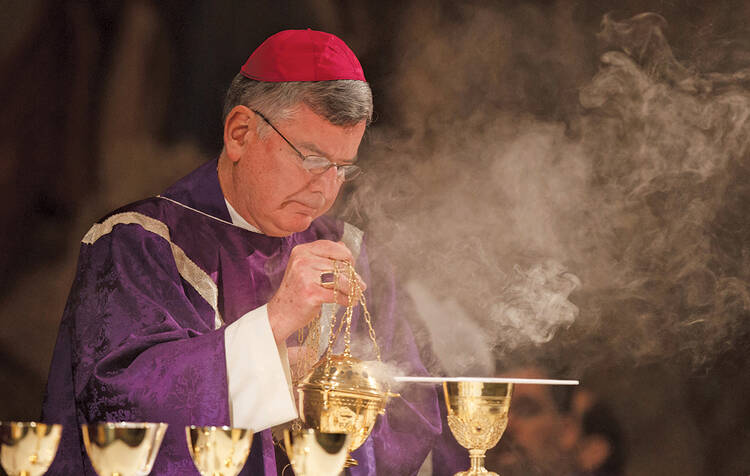Criminal charges were filed on June 5 against the Archdiocese of St. Paul and Minneapolis stemming from its handling of Curtis Wehmeyer, a troubled priest who was eventually convicted of child abuse in 2013 and defrocked in March 2015. Ramsey County prosecutors charged the archdiocese as a corporation with six gross misdemeanor counts, alleging that it failed to protect children. A civil petition issued at the same time seeks court supervision of the archdiocese related to the protection of children.
The Ramsey County attorney, John Choi, said in a statement, “It is not only Curtis Wehmeyer who is criminally responsible for the harm caused, but it is the archdiocese as well.” He said the archdiocese “time and time again turned a blind eye” to what was going on with Wehmeyer. Many of the complaints and troubling events related to the Wehmeyer case occurred long after the 2002 commitments made in the Dallas Charter for containing the problem of the sexual abuse of minors. Though the county’s allegations track a worrisome history dating back to Archbishop John Nienstedt’s two predecessors, the charges have become just the latest challenges to the authority and judgment of the embattled archbishop.
“Today, we are alleging a disturbing institutional and systemic pattern of behavior committed by the highest levels of leadership of the Archdiocese of St. Paul and Minneapolis over the course of decades,” Mr. Choi said. “The archdiocese’s failures have caused great suffering by the victims and their family and betrayed our entire community—from the many courageous clergy and laypeople whose legitimate concerns about Wehmeyer’s behavior were ignored or minimized to those Catholics and non-Catholics alike who were falsely led to believe that the archdiocese had effective measures in place to protect children.
“The facts that we have gathered cannot be ignored; they cannot be dismissed and are frankly appalling,” Choi told local media at a press conference announcing the filing of the criminal complaint.
Regarding the possibility of criminal charges being filed against individuals associated with the archdiocese, the county attorney’s Public Information Officer Dennis Gerhardstein said, “At this time, no, but the case is ongoing.”
He said that the county attorney’s office felt that it had enough evidence now to begin building a case against the archdiocese as a corporate entity that had demonstrated a long-term “pattern of behavior” that put children at risk of harm.
“We’re still looking at the evidence; this is not the end of our investigation.” He added, “This is where we are starting.”
The criminal complaint and civil petition represent the results of a 20-month investigation, Gerhardstein told America. Much of Wehmeyer’s particularly sordid story has already been recounted by the local media in Minnesota, but the complaint’s often-shocking narrative represents the first time that the county attorney’s office attempted a comprehensive overview of the case, including various abuses and reports of abuse by Wehmeyer, and the archdiocese’s at times inexplicable responses to those reports.
Wehmeyer, currently serving five years in prison in Minnesota for child abuse and facing more allegations in Wisconsin, appears in the county’s complaint to have been troubled as far back as his seminary days. He was repeatedly reported to archdiocesan officials over years for an accelerating number of incidents, often drug- and alcohol-fueled, culminating in a series of assaults on children. The Wehmeyer story, Gerhardstein said, will be the center of the case the county plans to build against the archdiocese.
Reading the criminal complaint is not for the faint of heart. It depicts years of what to parents will no doubt appear inexplicable decisions at the highest level of the archdiocese as disturbing allegations against Wehmeyer and reports of his erratic behavior piled up.
In a statement released after hours after the court filing, Auxiliary Bishop Andrew Cozzens of the diocese said, “We deeply regret the abuse that was suffered by the victims of Curtis Wehmeyer and are grieved for all victims of sexual abuse.
“We will continue to cooperate with the Ramsey County Attorney’s office. We all share the same goal: To provide safe environments for all children in our churches and in our communities.”








